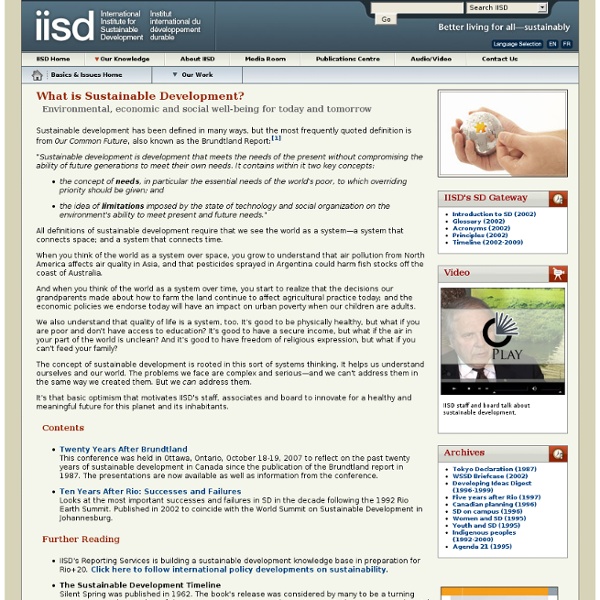



The Universal Principles of Sustainable Development By Terry Mock and Tony Wernke, SLDI Co-founders Follow Terry and Tony on Twitter: Terry @SustainLandDev; Tony @Sustainable4U This article is Part 3 in the Fractal Sustainable Development Trilogy. Part 1: Designing a ‘Big Wheel’ for Civilization Part 2: Like Life Itself, Sustainable Development is Fractal As a comprehensive sustainable development decision model, The SLDI Code™ functions as a completely integrated, fractal matrix which leads decision-makers from the foundation of triple-bottom-line sustainability to sustainable results. This unique model (depicted graphically by the logo to the right) is a result of the input and vetting of numerous sustainable project leaders. NOTE: The principles embedded in the SLDI Code Sustainable Development Matrix are universal in their application and need not be confined to land development projects. The SLDI Code is not designed to replace or compete with other more narrowly defined programs or regulatory constraints. Profit (Economic Capital)
17 Apart: Growing Celery Indoors: Never Buy Celery Again Remember when we tested and shared how to grow onions indefinitely last week? Well, at the same time, we've been testing out another little indoor gardening project first gleaned from Pinterest that we're excited to share the successes of today — regrowing celery from it's base. We've figured out how to literally re-grow organic celery from the base of the bunch we bought from the store a couple weeks ago. This project is almost as simple as the onion growing project — simply chop the celery stalks from the base of the celery you bought from the store and use as you normally would. Instead of tossing the base, rinse it off and place it in a small saucer or bowl of warm water on or near a sunny windowsill — base side down and cut stalks facing upright. We let our celery base hang out in the saucer of water for right around one week, give or take. We watered it generously and after planting in the soil, the overall growth really took off. Discover More:
Shroomery - Magic Mushrooms (Shrooms) Demystified Survival of women during SHTF | SHTF School JL is a female member of my survival course and she asked a lot of woman specific questions about my SHTF experience. I decided to interview women because of that. I can talk about my experience but women live often in different world of feelings and emotions. I spoke with first woman named Una, now 52 (so in her 30s back then) who took care of her family during that time. I asked JL to send me some questions she had on her mind and she did. Una started to describe her situation My first and worst concern was what is gonna happen with my kids, I had two toddlers, and I did not have any clue what is gonna happen, or even what is gonna look like when hell broke lose. I never had question am I going to leave this place, I found it normal to stay in my city, with husband, in my house. If I want to describe my worst feeling trough all of that, it was not hunger, danger, fire, cold or anything like that. Anyway I choose to keep my kids with me, still do not know if it was right decision.
The Art of Personal Transformation e-book and course Sustainability Non Profit: One Community | One Planet | One People | Working together to create sustainability and open source blueprints for a sustainable civilization